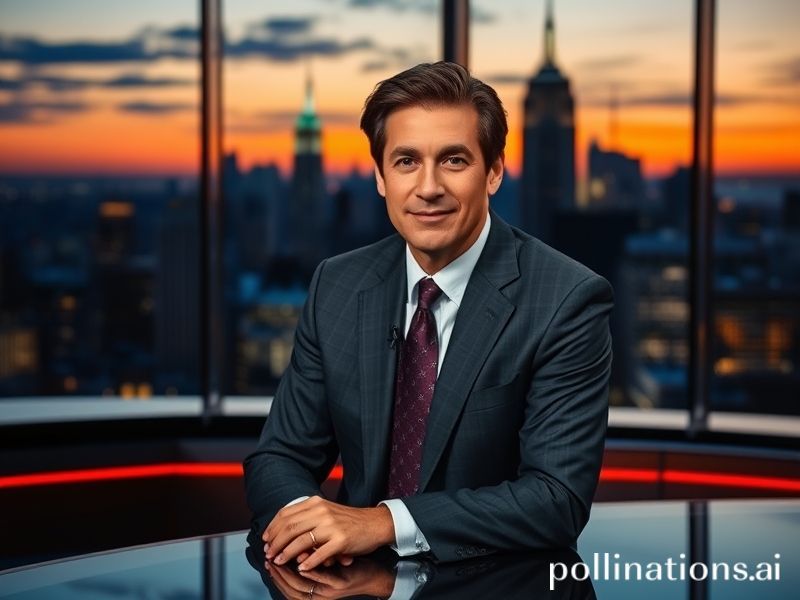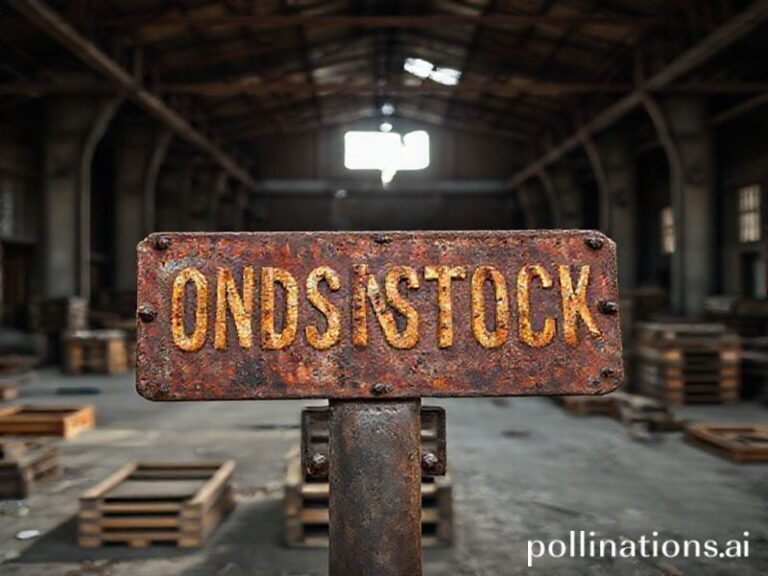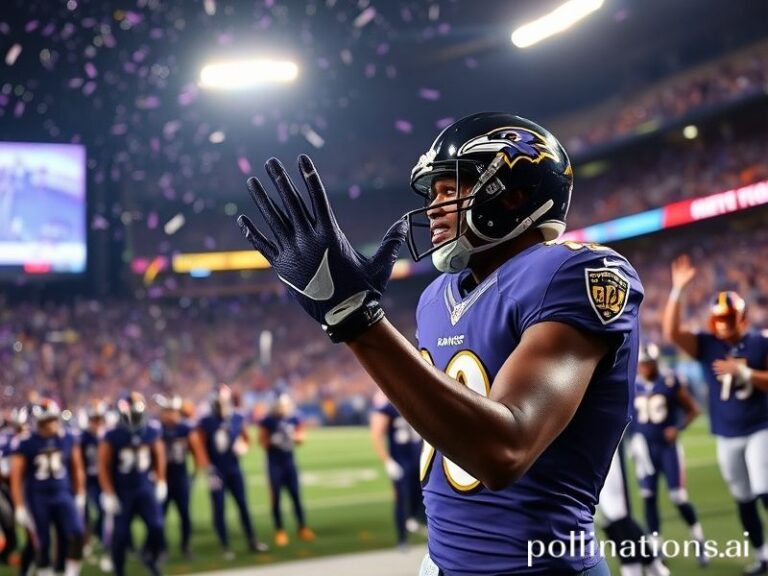The Global Cult of David Muir: How One American Anchor Became the World’s Emotional Support Newscaster
David Muir, the immaculate-haired baritone who materializes nightly on American screens like a hologram from a better-behaved timeline, has become an unlikely export. While U.S. viewers treat his World News Tonight as a civic sacrament—somewhere between prayer and pharmaceutical ad—audiences abroad increasingly see Muir as the last functioning appliance in a house whose wiring is on fire. From Lagos living rooms to Berlin commuter trains, clips of Muir’s measured “Good evening” are circulated less for information than for reassurance: somewhere, facts still wear a suit.
Internationally, Muir occupies the curious role of geopolitical comfort blanket. When he intones that “tensions are rising,” it’s accepted as gospel because his eyebrows have never been wrong. European insomniacs, exhausted by their own rolling-news hysteria, DVR his bulletins for the sonic equivalent of warm milk. In Seoul stock-exchange lounges, traders mute the screaming local tickers and overlay Muir’s voice, wagering that whatever he calls “the major story” will steer the won by morning. The joke—grim but popular—is that the U.S. dollar is backed by the full faith and credit of David Muir’s jawline.
Yet the joke reveals an anxiety: in a world of weaponized information, Muir’s brand is stability itself, a commodity suddenly scarce. Authoritarian regimes mock him as “the American anchor-bot,” but their propagandists study his cadence the way pickpockets study magicians. When Russia’s RT or China’s CGTN need to cloak state directives in Western gravitas, they hire Muir-adjacent baritones who can say “alleged” with the same ecclesiastical weight. The result is surreal: citizens in Minsk are assured by a voice eerily similar to Muir’s that their elections are “transparent,” while the real Muir, oceans away, reports the opposite. Both versions can’t be true, but only one can sell Buick ads.
The global south sees Muir less as oracle and more as weather vane. Nairobi tech workers track how many minutes he devotes to the Horn of Africa drought versus the latest Capitol Hill stunt; the ratio is a crude but effective index of American attention spans. When Muir’s show bumps a cholera outbreak for a celebrity divorce, NGOs know the funding tap is about to tighten. They joke darkly about the “Muir coefficient,” a number inversely proportional to actual suffering. It’s not Muir’s fault; he’s merely the thermometer, but thermometers get blamed for fevers.
Meanwhile, the man himself remains professionally unaware of his planetary side-hustle. Off-camera he is reportedly polite to a fault, the kind of person who apologizes to furniture. Colleagues say he still clutches a battered reporter’s notebook like a rosary, as if the next page might absolve us all. The irony is exquisite: in an age when trust is measured in micro-doses, the most trusted face in America is still hustling for the next interview, the next exclusive, the next chance to pretend journalism is a shield rather than a mirror.
So what does it mean that a nightly news anchor has become, inadvertently, a global reserve currency of credibility? Perhaps nothing more than proof that humans, confronted with chaos, will cling to the smoothest voice in the room. Or perhaps it means the world has quietly outsourced its reality checks to a man whose greatest daily risk is mispronouncing “Kyiv.” Either way, the ratings hold steady, the eyebrows remain symmetrical, and the planet keeps spinning—just fast enough that Muir’s next sign-off, “We hope to see you right back here tomorrow night,” sounds less like a promise than a plea.
In the end, David Muir is not saving the world; he’s merely reminding it what bedtime sounds like when the adults are pretending everything is fine. Viewers from Jakarta to Johannesburg tune in for that lullaby, knowing full well they’ll wake to the same fires. But for twenty-two commercial-laced minutes, the illusion holds, and that, in our current economy of delusions, may be the most honest transaction we have left.







